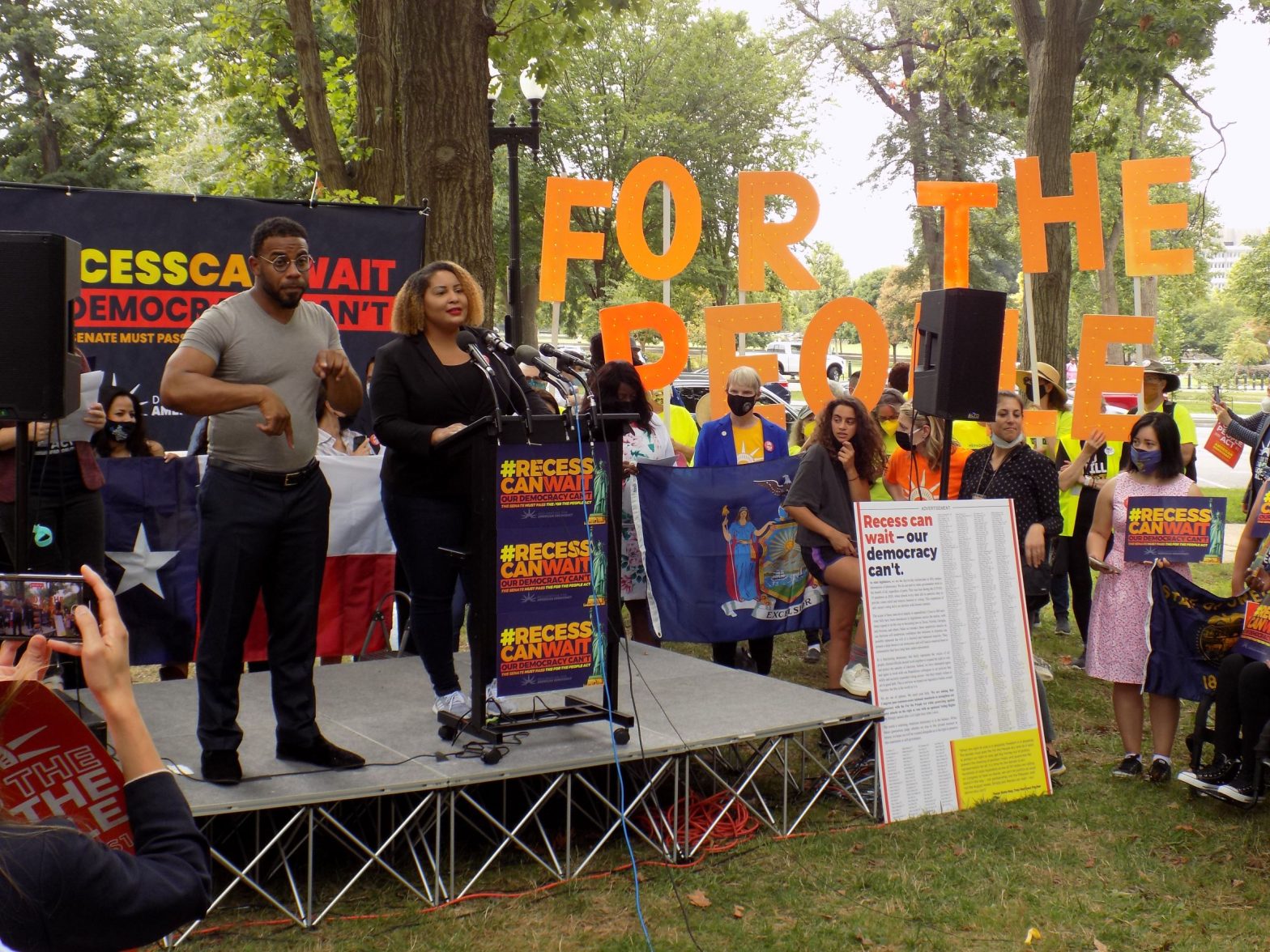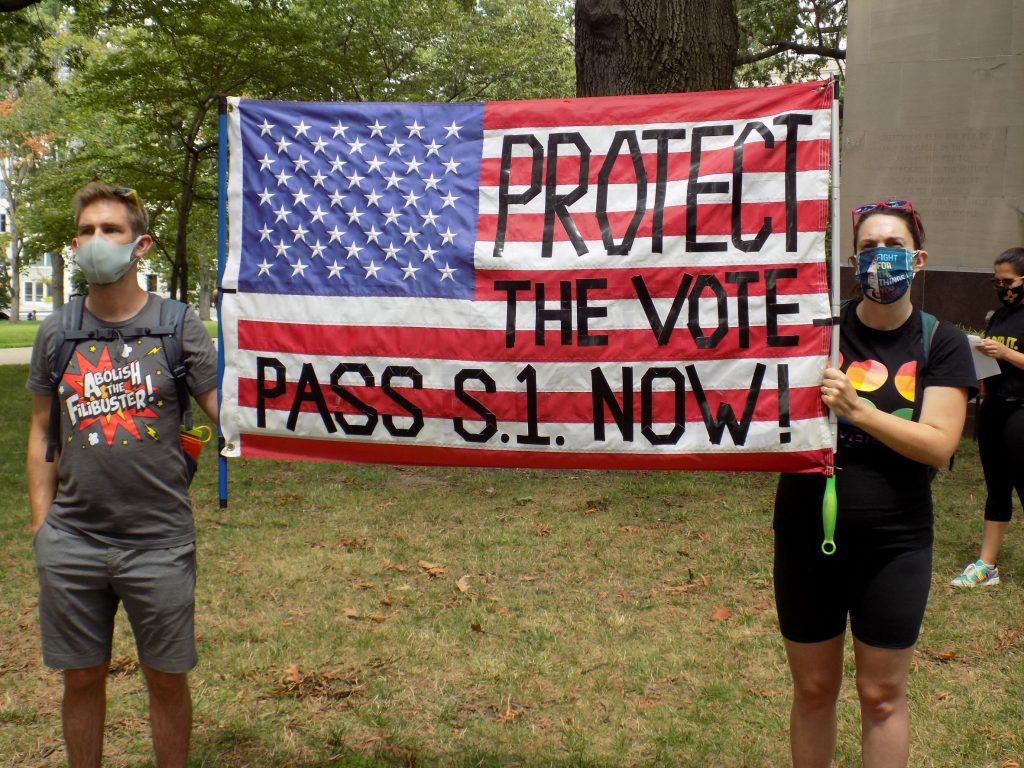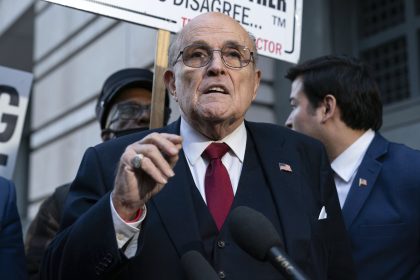GOP Lawmakers Target Authority of County and State Election Officials

Secretaries of state and county election officials nationwide resisted calls by former President Donald Trump and his allies to decertify the results of the 2020 presidential election. Now, Republican legislators in at least 14 states have enacted 23 new laws that shift authority away from local election officials.
Despite Trump’s adamance that widespread voter fraud cost him reelection, post-election audits and a flurry of legal challenges ended fruitlessly for him and his campaign. Trump would go on to fire Christopher Krebs, then-director of the Cybersecurity and Infrastructure Security Agency, after Krebs refuted Trump’s claim that mass voter fraud compromised the 2020 results.
Additionally, former Attorney General William Barr — who was appointed by Trump and served in the same role in the administration of former President George H.W. Bush — also dispelled Trump’s assertion in an interview with the Associated Press, saying “we have not seen [voter] fraud on a scale that could have effected a different outcome in the election.”
However, efforts by GOP leaders across the nation to rewrite the rules of elections have caused growing concern among local officials that future attempts to pervert democratic outcomes may succeed, according to a Stateline analysis published by the nonprofit Pew Charitable Trusts.

The 14 states enacting laws curtailing the powers of state and local election officials as of June 4 are: Arizona, Arkansas, Florida, Georgia, Idaho, Indiana, Iowa, Kansas, Kentucky, Montana, North Dakota, Tennessee, Oklahoma and Texas.
“When states have close elections, many will recount ballots,” the Elections Infrastructure Government Coordinating Council and the Election Infrastructure Sector Coordinating Executive Committees said in a joint statement. “All of the states with close results in the 2020 presidential race have paper records of each vote, allowing the ability to go back and count each ballot if necessary. This is an added benefit for security and resilience. This process allows for the identification and correction of any mistakes or errors. There is no evidence that any voting system deleted or lost votes, changed votes, or was in any way compromised.”
In one instance, Republican lawmakers in Arkansas enacted legislation allowing the state’s legislature to investigate county election offices for suspected election fraud. This law opens the door for decertifying county election officials, granting State Board of Elections sovereignty over county election offices and levying fines against county officials of up to $1,000.
Other measures in at least 18 states have enacted 30 new laws that limit early and mail-in voting, establish new voter ID requirements and limit the use of ballot drop boxes, according to the Brennan Center for Justice at the New York University School of Law.
“Democrats value as many people as possible voting, and they’re willing to risk fraud” Arizona state Rep. John Kavanagh, R-Scottsdale, said in an interview with CNN. “Republicans are more concerned about fraud, so we don’t mind putting security measures in that won’t let everybody vote — but everybody shouldn’t be voting.”
Kavanagh — who chairs Arizona’s House Government and Elections Committee — continued, “Not everybody wants to vote, and if someone is uninterested in voting, that probably means that they’re totally uninformed on the issues. Quantity is important, but we have to look at the quality of votes as well.”
A memorandum circulated in June by the nonpartisan organizations States United Democracy Center, Protect Democracy, and Law Forward noted “[the] commitment of many state legislatures to attacking the foundations of our democracy appears to have deepened.”
The groups’ memo accompanied a detailed report highlighting the strategy of Republican-led legislatures attempting to “politicize, criminalize, and interfere in election administration.”
The joint report maintains the efforts by Republican legislators to criminalize election administration blatantly arrogate core election functions from local jurisdictions. As of June, 216 bills nationwide had been introduced that permit state legislatures to interfere with the administration of local and statewide elections.
“Had these bills been in place in 2020, they would have significantly added to the turmoil that surrounded the election, and they would have raised the alarming prospect that the outcome of the presidential election could have been decided contrary to how the people voted,” the nonpartisan officials cautioned in a written statement from a previous report.























